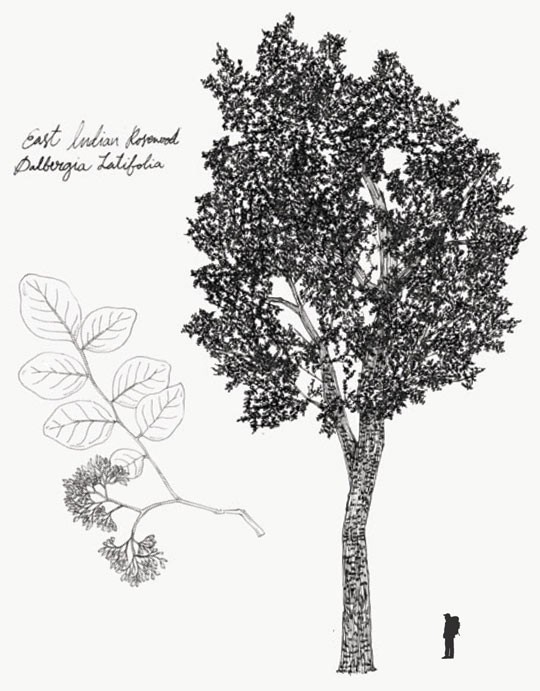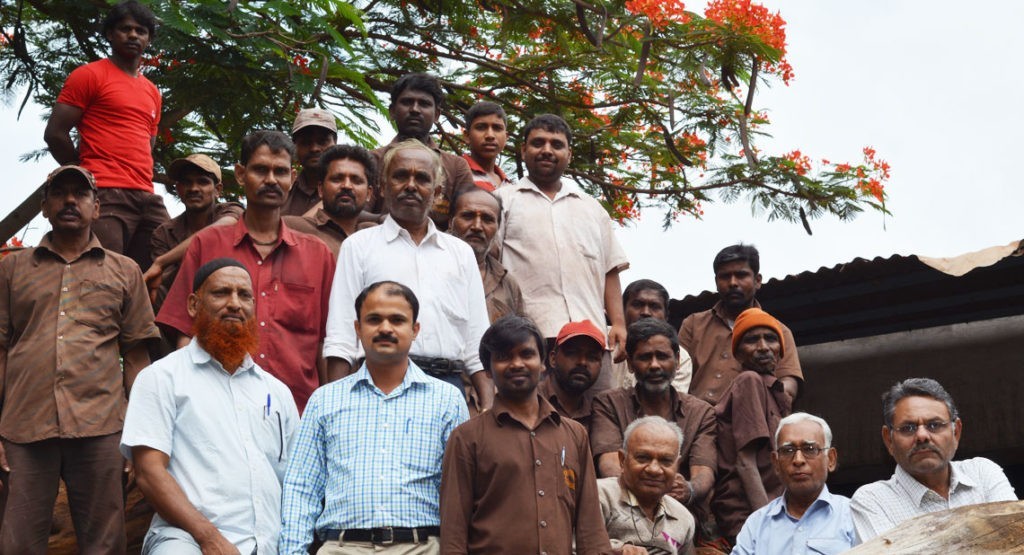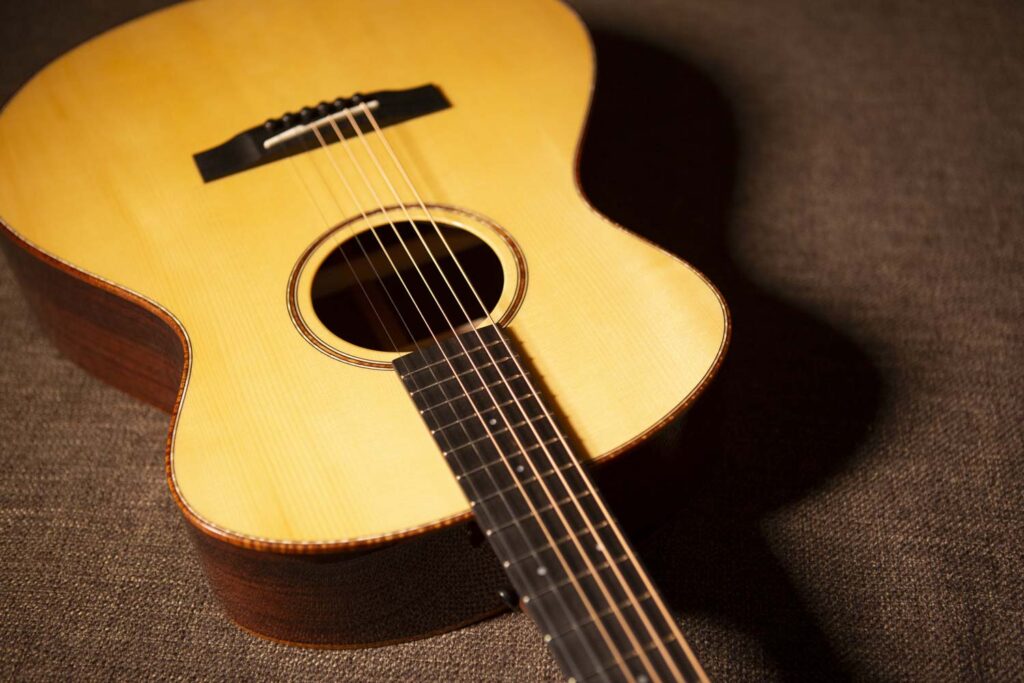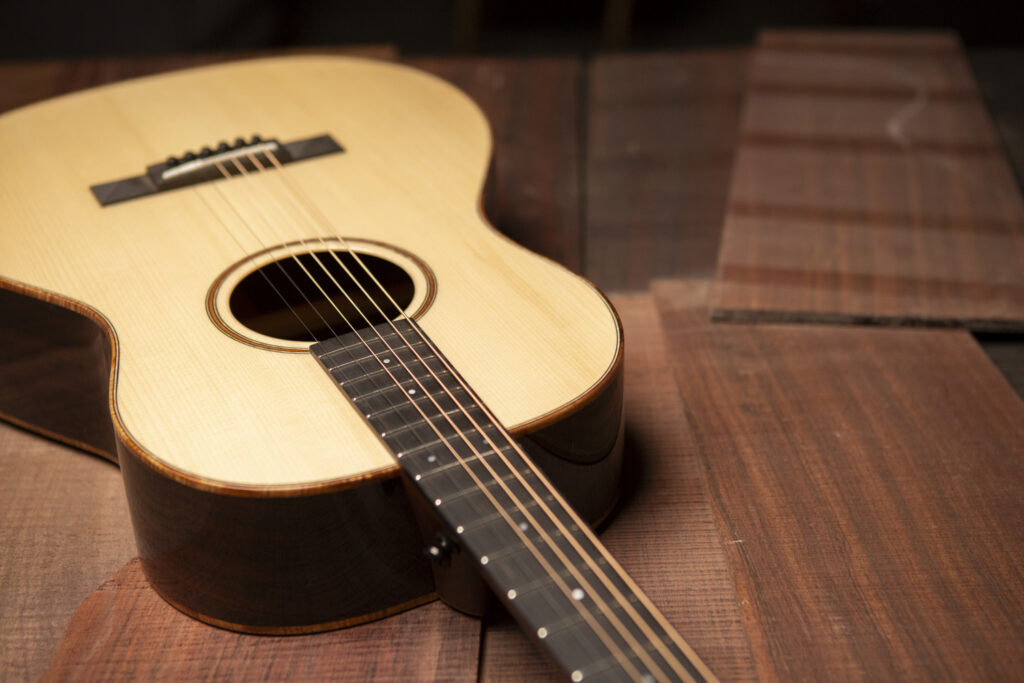East Indian Rosewood

Over a century ago, a rosewood seed sprouted in Karnataka, India, destined to become a part of your Coffee House guitar… but first it had a job to do. Shortly after the Titanic collided with a formidable iceberg and during the months preceding WWI when all of Europe was on edge, this little seedling took root and prepared to serve its first purpose: to provide protection and shelter. Throughout its life, this beautiful rosewood tree offered shade to the coffee plants that flourished near its roots. It matured more quickly than its wild relatives, thanks to the farming practices bestowed on the coffee plants such as fertilizer, compost, and plentiful water.
The fertile and culturally rich Indian state of Karnataka produces over 50% of the nation’s coffee, and India’s shade-grown beans are legendary among coffee aficionados. In addition, shade-grown coffee plantations are far more sustainable than full-sun coffee plantations because no clear-cutting is required to make way for the crop. Shade-grown coffee plants exist in a natural ecosystem where the farmers work in harmony with the existing terrain and plant and animal life.
Prior to its incarnation in your Bedell guitar, the tree that provided your tonewood benefited from the care given to its soil mates and in return, provided cool shade for the crop, shelter and habitat for an array of insects and dozens of species of birds, and contributed plentiful leaf mulch and cuttings to return nutrients back to the soil. This tree was harvested with the permission of Indian forestry officials when it could no longer contribute the requisite amount of shade to benefit the coffee crops it was serving. In most cases, whenever a rosewood tree is legally harvested in India, another seedling is planted nearby to ensure continual renewal of Indian forest resources.
Stringent governmental regulations dictate very specific guidelines for the harvest and sale of all Indian hardwoods. There is only one source for acquiring legal East Indian rosewood that grows in India: The auctions overseen by the government. All auctioned woods are subject to very strict regulation. It is illegal to cut any living East Indian rosewood tree in the wild. Rosewood trees may be harvested on private property, such as a coffee plantation, however a permit is required. The tree must be at least 175 centimeters in diameter (nearly six feet), and the landowners are not allowed to harvest the tree themselves. Once a permit is acquired (if it is granted), a licensed third party harvests the tree, assigns it a unique number and transports it to the nearest government depot for auction. All legally harvested Indian hardwoods must follow these procedures. There are checkpoints throughout the country and if a driver is found transporting Indian hardwood without the proper permits, the wood and the driver’s vehicle will be confiscated on the spot.






